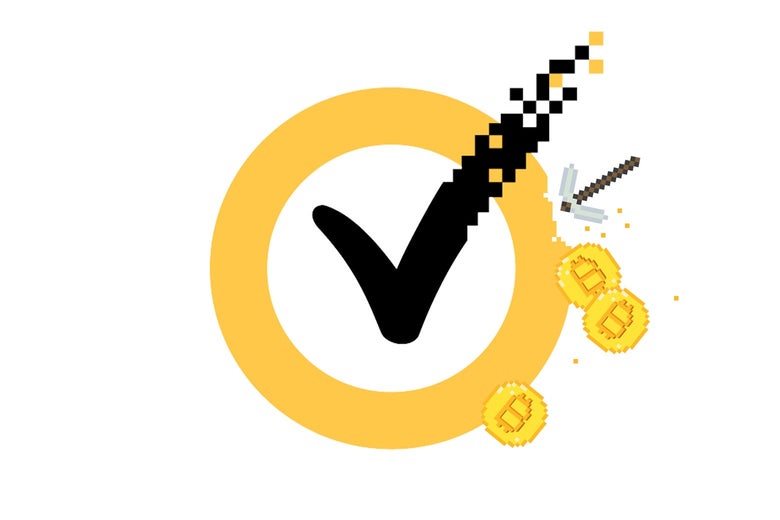Why an Antivirus Software Company Is Now Going Into Cryptomining
Over the summer, the antivirus company Norton announced that it was adding a new feature to its LifeLock security software: the ability to mine cryptocurrencies using its “Norton Crypto” tool. True to Norton’s roots as a security company, Norton Crypto was touted as a way to help customers improve their cybersecurity by enabling them to mine cryptocurrency without having to rely on “a code”. unverified on their machines which could skim their income or even crash ransomware. “Granted, there are real security risks associated with downloading and running unreliable mining programs. But, as a rule, when a business turns into a cryptocurrency business, it’s usually because ‘she’s struggling and looking to move from a failed business model to something new and cool (and potentially lucrative). In 2018, for example, while I was living in Rochester, NY, local business giant Eastman Kodak has announced it is launching a “photo-centric cryptocurrency.”
So when a leading antivirus company turns to cryptocurrency, it’s certainly possible to interpret that move as a sneaky cash grab. That was the gist of Cory Doctorow’s speech Tweeter about Norton Crypto this week, in which he pointed out that Norton takes a share of the cryptocurrencies its users mine (15% of the crypto allocated to each miner, according to its website). But perhaps the most interesting question is what does it say in the antivirus software market that one of the most prominent manufacturers of these products is now moving down the Kodak path.
Once upon a time, say 10 years ago, antivirus software was one of the standard cybersecurity recommendations for everyone. Companies purchased licenses for all of their corporate computers from one of the major vendors and it became evident that all Windows computers, or at least all work computers, were running a program from McAfee or Norton or Kaspersky. or Avast, or one of the other usual suspects, in the background anytime to scan for viruses. Most of these companies now offer a range of other security services in addition to standard anti-virus and anti-malware programs. McAfee and Norton provide identity protection and VPN services, Kaspersky sells a password manager and parental control system, and Avast has both a secure browser and a browser extension, for n ‘to name a few. In other words, the cybersecurity ecosystem has expanded far beyond just antivirus software. In fact, there is now a debate as to whether antivirus programs are even a particularly useful or effective line of defense for most devices, especially operating systems increasingly including built-in security features. For example, a few years ago Microsoft released the built-in Microsoft Defender Antivirus program with Windows 10. Apple devices, which are typically less targeted by malware than Windows devices, also include a software scan tool. malware called XProtect as well as malware. Removal Tool. And while it may seem like increased virus protection is always better, it doesn’t necessarily have to be. In fact, anti-virus programs have been known to try to uninstall themselves if they think other anti-virus programs are malware because they contain what they use to identify viruses).
For many of us, including me, the so-called security packages that came preinstalled on our work computers have become a bit like malware: clunky programs that take up a lot of computer resources and cannot be closed and popped up. constantly on the screen with irritating little messages. And more importantly, many of the cybersecurity incidents we worry about the most these days would probably be pretty unlikely to be detected or fixed by antivirus programs anyway.
Perhaps it is more accurate then to say that anti-virus software looks a bit like a historical holdover from past cybersecurity best practices. Why do we hold on to them? Because they’ve been hammered at us for so many years, or we already have the institutional contracts in place to deliver these programs, or just because it seems like a little extra security can’t hurt at a time. where cybersecurity breaches are so much in the news. When someone asks me “Do I have to get a Norton Antivirus subscription?” These days, I always tell them no. There are security tools that I believe in that are sometimes worth paying for (e.g. password managers, VPNs), but antivirus software and identity protection services are not on this list. since many years.
It’s hard to dislodge entrenched cybersecurity guidelines, especially when the recommendations we now offer on how organizations should protect themselves (network segmentation, multi-factor authentication, penetration testing) can seem much more burdensome or time consuming than simple installation of code on everyone’s computer. So I’m not particularly optimistic that any of us will soon be getting work computers that aren’t overloaded with overloaded security packages.
But Norton Crypto’s announcement suggests that even large antivirus companies know their products are no longer at the forefront of cybersecurity protections if they plan to branch out into providing crypto mining services.
It remains to be seen whether Norton will be able to do this well (its user support advice is littered with complaints) and whether other security companies will follow suit. More and more companies are interested in cryptocurrencies is nothing new at this point, but the convergence of crypto mining and antivirus software is remarkable, if only as a warning sign. where these security companies are heading in the antivirus software market and how they hope to stay current. . But if Kodak’s unsuccessful attempt to revive the film and camera industry with a Bitcoin miner is any indication, pairing antivirus software with cryptocurrency mining may not be the inspiration. that Norton hoped it would be.
Future Tense is a partnership between Slate, New America, and Arizona State University that examines emerging technologies, public policy, and society.


Comments are closed.